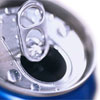Caffeine and kids: Knowing when to say when
Making sure kids eat a healthy diet can be tricky these days. There are lots of hidden ingredients in food, some of which can be harmful. Caffeine, a stimulant drug, is one ingredient that can be harmful if kids consume too much.
Aggressive marketing of caffeinated products to curious little minds, and their easy availability on supermarket shelves to curious little hands, can make keeping kids away from caffeine difficult. Caffeinated products usually look safe and appealing, which may make it hard to decide how much caffeine, if any, your child should be gobbling down.
So what’s the rest of Australia doing?
Research shows us that despite caffeine being a drug, Aussie kids are actually drinking and eating more caffeine from a very young age. If you heard your next door neighbour was giving their three-year-old caffeine (or any other drug), you’d probably be appalled and may not believe it. But did you ever consider that every cola, coffee and chocolate bar a kid eats contains a dose of the stimulant drug caffeine?
Put that way, it’s obvious that most kids consume caffeine, but is the caffeine in a chocolate bar or a can of cola really anything to worry about? Probably not, as long as a child eats such caffeine-containing foods in moderation.
How much is too much?
For both little kids and adolescents, it is best not to consume more than 2.5 mg of caffeine per kg of body weight each day. That’s 30 mg of caffeine a day for a kid who weighs 15 kg – or about the amount of caffeine found in a can of cola. A kid who weighs 50 kg can safely consume 100 mg of caffeine per day, roughly equivalent to a can of energy drink or a strong cup of coffee. Or to make it a little easier, you can just plug your numbers into the caffeine calculator below.
| Caffeine Calculator |
| Caffeine is a stimulant which can temporarily increase alertness and improve mood. However, when consumed in excess it may have negative health affects. You can use this tool to calculate your daily caffeine intake. |
| Click here to complete the Caffeine calculator |
On average, Australian kids consume caffeine at safe levels. A typical Aussie 3-year-old consumes about 3.4 mg of caffeine each day (but is likely to weigh 20 kg and could therefore safely consume up to 40 mg). Children aged 4–8 years get an average of 8 mg of caffeine per day. Even at 14–16 years, when kids are starting to stay up late studying and drinking coffee, the average Australian consumes 42 mg of caffeine.
But if it gives you wings, it may have too much caffeine
A word of warning to parents whose kids consume energy drinks: Recently, health professionals have started to raise some concerned eyebrows about the effects of ‘the juice’ (aka, ‘the energy drink’) on teenagers. Caffeinated energy drinks are everywhere now, and they’re marketed with exciting and sometimes pretty sexy packaging, which teenagers don’t mind at all, as you would have certainly noticed.
As if all the sugar wasn’t bad enough, most energy drinks also contain about the same amount of caffeine as a cup of coffee (around 80 mg), so one can of energy drink per day would be the maximum safe limit for an adolescent. However, some brands of energy drink have nearly 300 mg of caffeine, a nasty and potentially dangerous kick in the pants for any growing body weighing less than 120 kg!
Where kids are involved, it is always safer to err on the side of moderation. Some European countries have even put restrictions on the sale of caffeine-containing energy drinks to kids under 18, because we need more research on how they affect growing bodies.
Caffeine crazy
Kids are generally affected by caffeine in the same way as adults. So remember that time you had seven coffees by 3pm during a hard day at the office? Imagine if your child was over-consuming caffeine at school! They may turn from a mild-mannered sweetheart into a little gremlin by recess, so help the teacher out and keep them away from the coffee pot (or cola) before the bell. Help yourself out and ensure the caffeine’s also out of sight before bedtime because, as you may already be aware, this drug promotes wakefulness and can interfere with a good night’s sleep.
Kansas City Shuffle
Sound like your child needs to cut down on their caffeine? Remember, it’s an addictive drug and you may need to wean them off it! Try swapping their caffeinated drinks with milk or juices. They may ‘pipe up’ at first, but with time they will start to change their habits for the better. Kids generally have plenty of natural energy anyway, so they don’t really need caffeine kicks.
More information
 | For more information, see Caffeine Consumption in Children.
|
Dates
Tags
Created by:

 Login
Login














